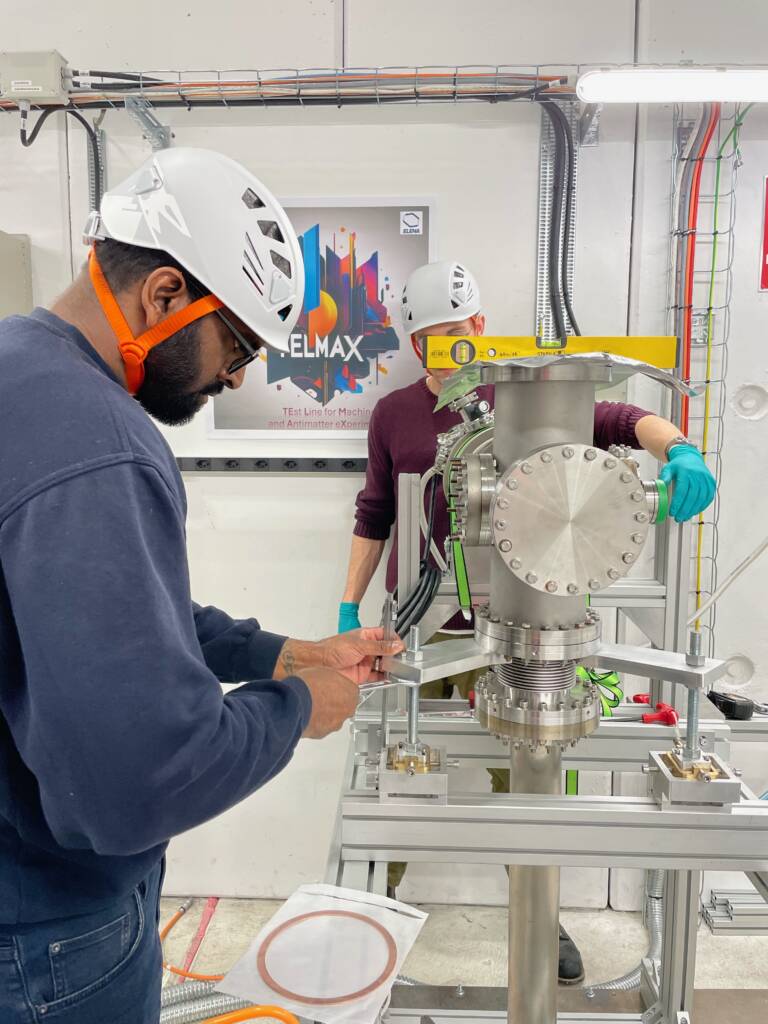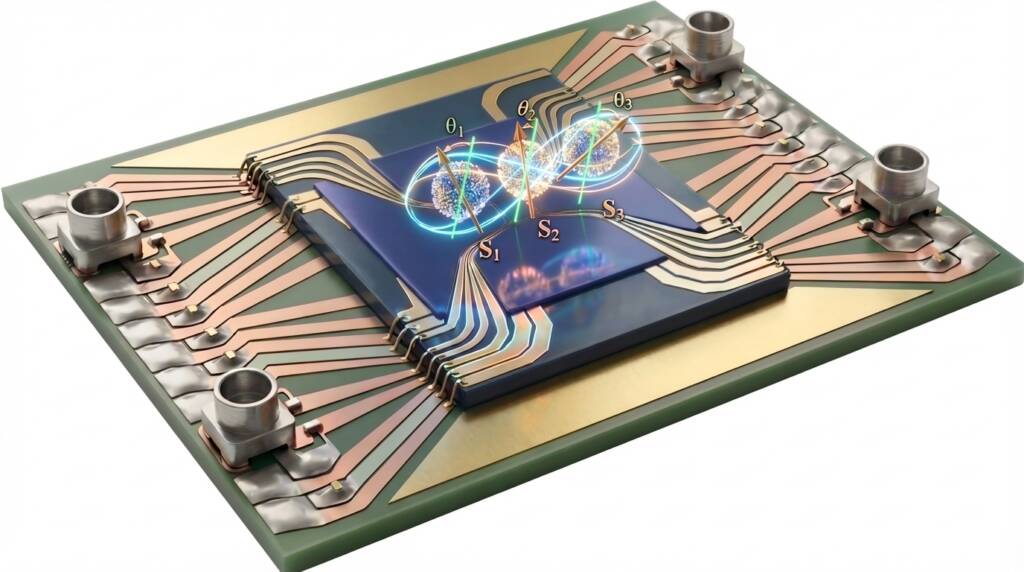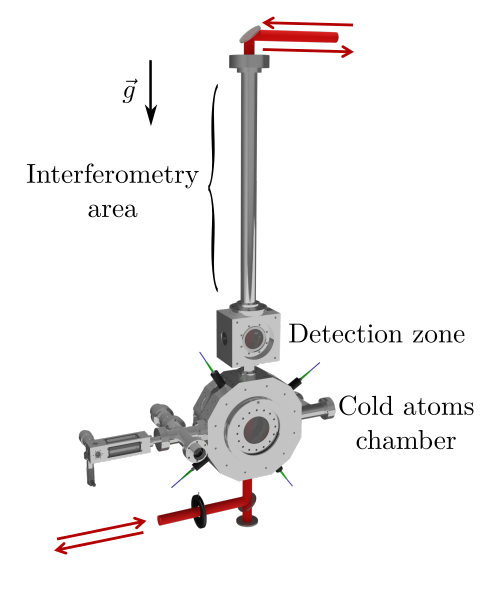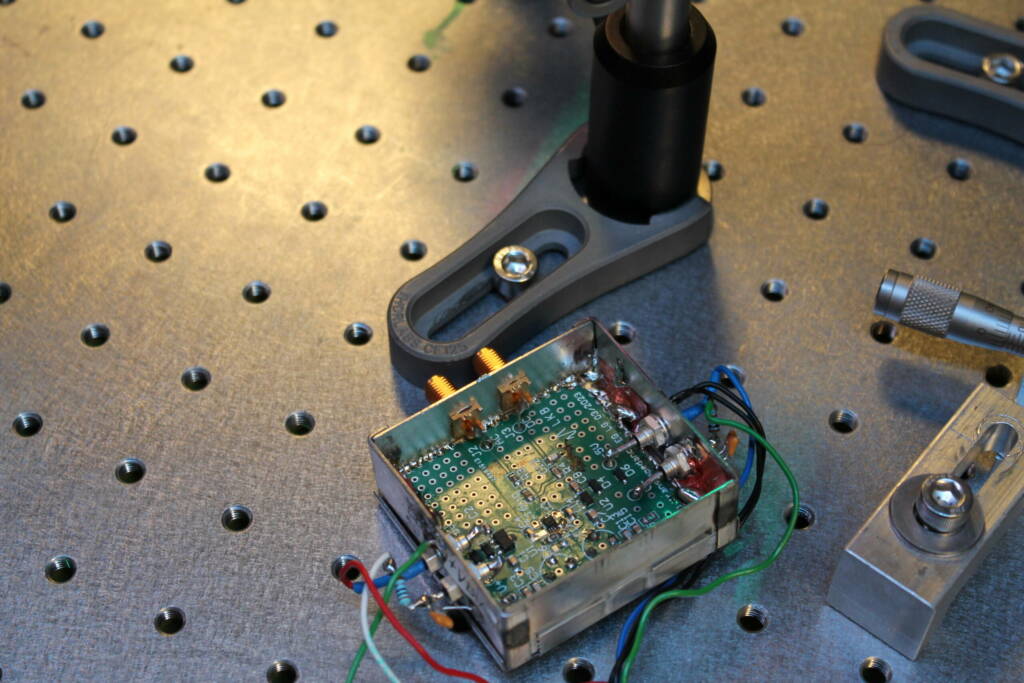- Home
- Laboratory
- Presentation
- News
- Collaboration between the Exotic Ions team and the LKB mechanical service at CERN
Collaboration between the Exotic Ions team and the LKB mechanical service at CERN
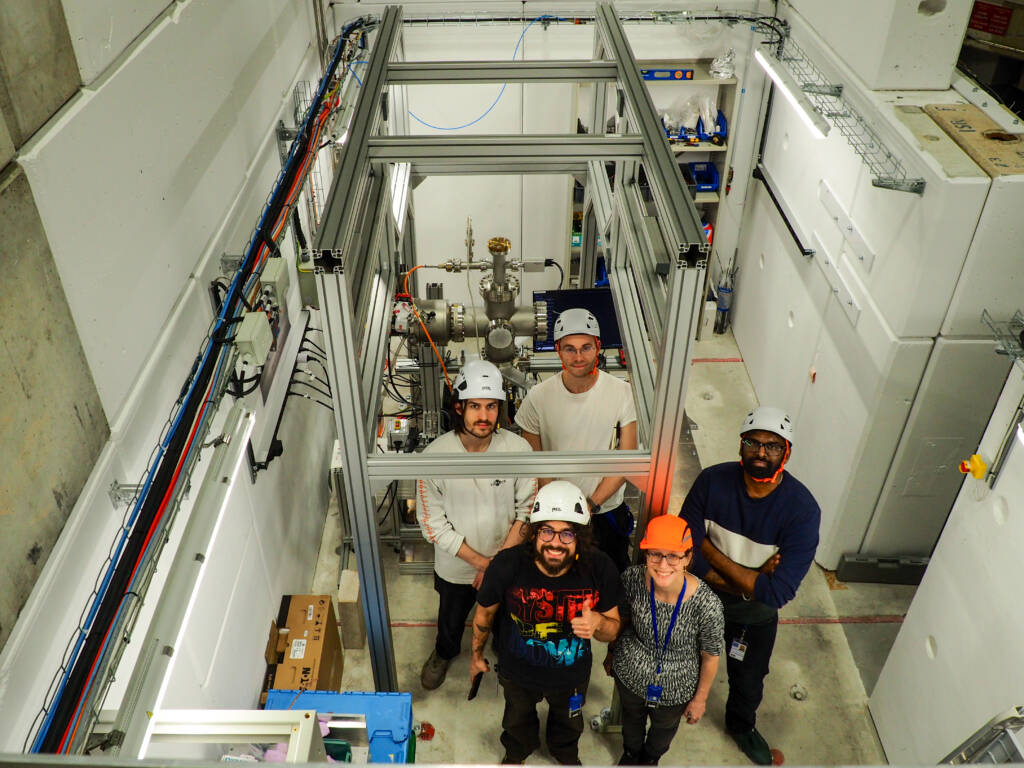
The PAX experiment (antiProtonic Atom X-ray spectroscopy) is a new initiative led by the Exotic Ions team at LKB. Its goal is to perform high-precision spectroscopy of antiprotonic atoms at CERN using quantum X-ray detectors. In an antiprotonic atom, the electrons in a normal atom are replaced by an antiproton—the antimatter counterpart of the proton. Because the antiproton is roughly 2000 times more massive than the electron, it orbits much closer to the atomic nucleus and is subjected to extremely strong electric fields. This makes antiprotonic atoms a unique laboratory for probing the structure of the quantum vacuum [1,2].
Such research is only possible at CERN’s Antiproton Decelerator (AD) in Switzerland, which hosts the world’s only low-energy antiproton beams. Working with antimatter is especially challenging, requiring ultra-high vacuum environments and specialized experimental chambers to avoid premature annihilation.
To meet these challenges, the Exotic Ions team collaborated closely with the LKB mechanical service, which designed and fabricated several custom components for the experimental setup. Members of the mechanical service even traveled to CERN to assist with the on-site installation and commissioning of the apparatus.
Carounagarane Doré, head of the LKB mechanical service, oversaw the mechanical integration of the project. He spent a week at CERN with the team, coordinating the installation of the experimental chamber and serving as a liaison between the LKB researchers and the CERN technicians.
Carounagarane Doré: “As a technical engineer on the PAX experiment, I was involved in the design, assembly, and maintenance of the experimental equipment. My main role was to ensure the proper functioning of the mechanical systems used.
I worked closely with physicists to optimize instrument performance, troubleshoot technical issues in the field, and ensure the reliability of the setup during the testing and operational phases.
This experience allowed me to develop skills in scientific instrumentation, technical project management, and teamwork within a cutting-edge research environment.”
PAX is inaugurating CERN’s brand-new TELMAX test beamline, with a successful first beam test conducted in May 2025.
[1] N. Paul et al, Phys. Rev. Lett. 126 (2021) 173001
[2] G. Baptista et al, Proceedings of Science (2025),
arXiv:2501.08893
Read also : https://home.cern/news/news/experiments/antiprotons-test-standard-model
